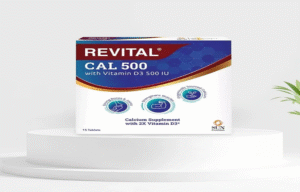7 Key Factors to Consider When Buying Supplements

Incorporating healthy food into your diet is a perfect way of ensuring that you meet your mineral and vitamin needs. But in some situations, taking supplements might be necessary.
Buying supplements can be very challenging, especially with many options to choose from out there. This is why experts have recommended the following factors to help you choose the right supplements:
1. Transparency
Nowadays, every supplement manufacturer strives to create a transparency revolution through ingredient traceability, certification program, and detailed information about the ingredients they use. So if you always prioritize transparency with the food products you eat and other things you buy, you need to do the same thing with supplements.
2. Ingredients
According to health experts, consumers are taking well-being matters into their hands, and that includes dietary supplements and vitamins.
Because of that, the supplement sector is challenged to give access to connectivity and information. So when you review a manufacturer’s information, ensure you look at the product’s ingredients.
Remember to research so as to weigh the advantages and disadvantages and see what other consumers and experts say about the manufacturing process and how ingredients are sourced.
3. Allergy-Friendly
Similar to food manufacturers, supplement manufacturers must clearly identify major food allergens on all their labels. These allergens may include fish, shellfish, eggs, tree nuts, peanuts, soy, dairy, and wheat.
If you have any food allergies, ensure your supplements don’t contain allergens that can trigger the allergy. This is why it is advisable always to read the list of ingredients and talk to your doctor if you have concerns about the ingredients in the supplement.
4. Doctor Recommendations
Always talk to your doctor before making any order. Don’t buy blindly because your family member or friend got good results. Everyone’s body responds differently to various products.
Hence, don’t make any decision before you consult a local physician. If your doctor gives you an okay once the examinations are done, then it means you can get desired results.
Always take the health of your body seriously. And the best way to do that is to prioritize your doctor’s opinion when making a good decision.
5. Dosage
Like medications, health additives must be used the way your doctor recommends. Don’t blindly use a supplement if you are looking to get good results.
If you aren’t sure, research to know what dose you need to take. But if your doctor is just one call away, consult the expert first for directions.
6. Cost
Supplements should be affordable. However, cheaper doesn’t always mean better. Cheap brands don’t use quality ingredients. And that means their products are ineffective.
7. Bioavailability
This refers to the nutrients’ amount your body can absorb. There are different types of nutrients, some of which are much easier to absorb.
For instance, magnesium is often available in various forms, such as magnesium citrate, taurate, bis-glycinate, sulfate, and chloride. So ensure you research first to choose the right type for you.
The Bottom Line
Some supplements may turn out to be harmful, especially when stored incorrectly. So it is best to keep your supplements in a dry and cool place as well as out of reach from kids and pets.






